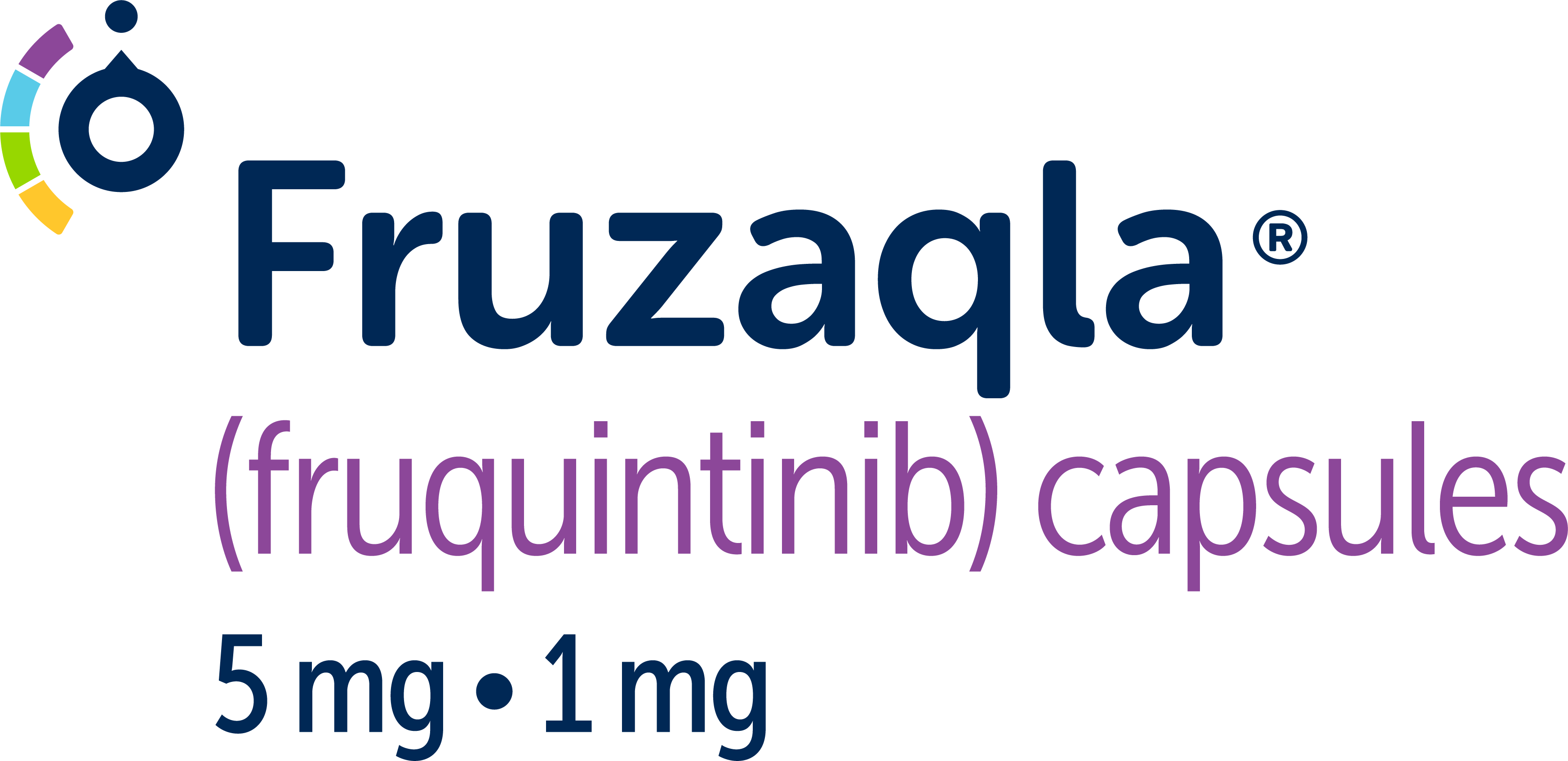
How can FRUZAQLA® (fruquintinib) help?
FRUZAQLA was studied across 2 clinical trials that included more than 1100 people
The 2 studies were called FRESCO and FRESCO-2. FRESCO was a single-country study, while FRESCO-2 was a global study. Because FRESCO-2 included adults with metastatic colorectal cancer (mCRC) from several countries we are focusing on these results. It compared people taking FRUZAQLA plus best supportive care* with people taking placebo (sugar pill) plus best supportive care.
People in FRESCO-2 were between 25 and 86 years old. The median† age was 64 years. They had all received chemotherapy in the past.
The FRESCO-2 study measured a few things about FRUZAQLA, including:
Do people live longer with FRUZAQLA compared with placebo?
Does it take longer for people's mCRC to get worse with FRUZAQLA compared with placebo?
How safe is FRUZAQLA?
*Best supportive care (or BSC) focuses on managing stage 4 colon cancer symptoms and keeping you as well as possible. It may include things like counseling or pain management.
†Median=the midpoint value of a range of values.
Current metastatic colorectal cancer treatment guidelines recommend FRUZAQLA (fruquintinib) as a potential treatment option for previously treated mCRC
Results with FRUZAQLA
Learn about the clinical trial results of FRUZAQLA from Dr. Al Hallak, a GI medical oncologist.
ViewHide Transcript
Dr. Al Hallak
FRUZAQLA is a prescription medicine used to treat adults with colon or rectal cancer that has spread to other parts of the body, and who have received previous treatment with certain anti-cancer medicines.
It is not known if FRUZAQLA is safe and effective in children.
I prescribe FRUZAQLA to patients with colon or rectal cancer that spread to another organ, means stage four disease. That would either went through the available chemotherapy options along with some targeted therapy options available for them or unfortunately were not able to go through those treatments due to side effects. Those patients usually we consider them in the second line or third line and beyond where they are searching for other treatment options for their cancer.
In Fresco-2 trial patients who took FRUZAQLA lived longer than those patients that took placebo means the sugar pill.
The median overall survival for patients taking FRUZAQLA in the clinical trial was 7.4 months compared to placebo, which was 4.8 months. That means there was 2.6-month improvement in the survival in the FRUZAQLA arm. In a different way, patients who took FRUZAQLA in the clinical trial had 34% more likelihood of living longer.
In Fresco two trial people taking FRUZAQLA went more than twice as long without their colon cancer getting worse compared to those taking placebo, means sugar pill. In the trial it was observed that the median progression-free survival for patients taking FRUZAQLA along with best supportive care was 3.7 months compared to 1.8 months in the placebo arm. That means there was 1.9 months improvement in those patients taking FRUZAQLA plus best supportive care compared to placebo.
In a different way, we tell patients that when you take FRUZAQLA it will improve your chance of not getting the colon cancer worse by 68%.
FRUZAQLA is an oral target therapy. It is not chemotherapy, and it will help you to fight the colon cancer. FRUZAQLA is an oral option that you can take at home, so you don't have to worry about coming to the infusion center. You can also take FRUZAQLA if you're traveling to continue the treatment of the colon cancer while you are abroad.
The most common side effects of FRUZAQLA reported in the clinical trial that led to the FDA approval are voice changes or hoarseness, abdominal pain, diarrhea, weakness, lack of strength and energy, and feeling very tired or sleepy.
In my experience, the most common side effects I have seen from FRUZAQLA in my clinical practice are tiredness, hoarseness in the voice and dryness in the hands and feet.
How to take FRUZAQLA
Learn more about dosage and keeping track of your dosing schedule.
Side effects with FRUZAQLA
Explore the potential common side effects while taking FRUZAQLA.
